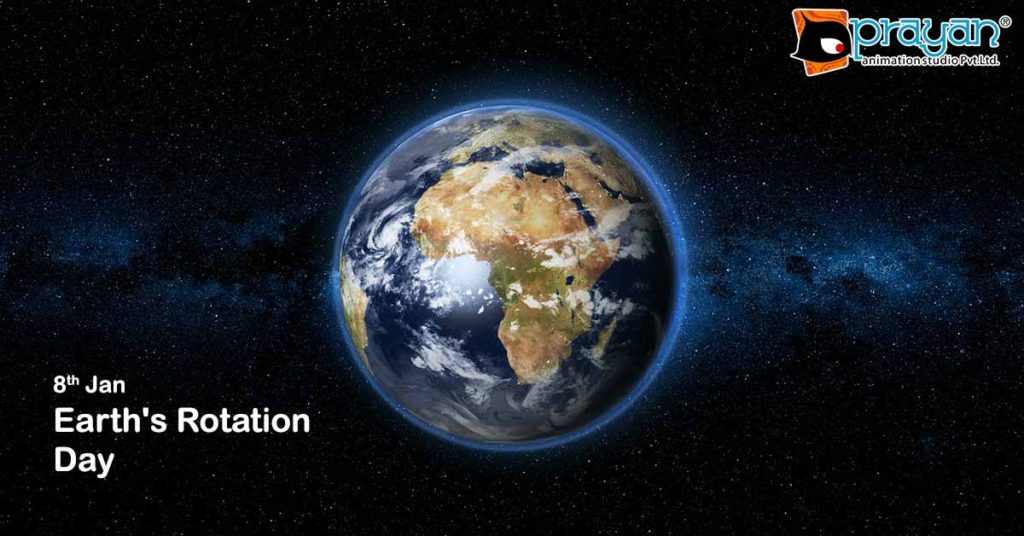08th January: Earth’s Rotation Day

January 8 is Earth’s Rotation Day. The day commemorates when French Physicist, Leon Foucault, demonstrated the Earth rotates on its axis in 1851.
The earth rotates on its axis and one full rotation takes 24 hours to complete. We’d be very surprised if you didn’t already know that, but what you may not know is that the speed of the earth’s rotation can change from day to day and year to year. So a true solar day is not exactly 24 hours, but the variations are a matter of seconds. A mean solar day is based on the yearlong average, but the basic concept of a solar day itself is the length of time for the earth to complete one full rotation on its axis.
In 1851, the French physicist Léon Foucault demonstrated how the earth rotates by suspending a lead-filled brass ball from the top of the Panthéon in Paris. This device, now known as the Foucault Pendulum, showed that the plane of the swing of the pendulum rotated relative to the Earth’s own rotation.
Earth’s Rotation Day honors Foucault’s first public demonstration and from what we could find it has historically been celebrated on the anniversary of that occasion. That being said, we’re less clear on who first marked the occasion of Earth’s Rotation Day or when they decided to do it. It probably didn’t happen in Foucault’s lifetime, but we can’t be completely certain either way.














 We can help you.
We can help you. 




